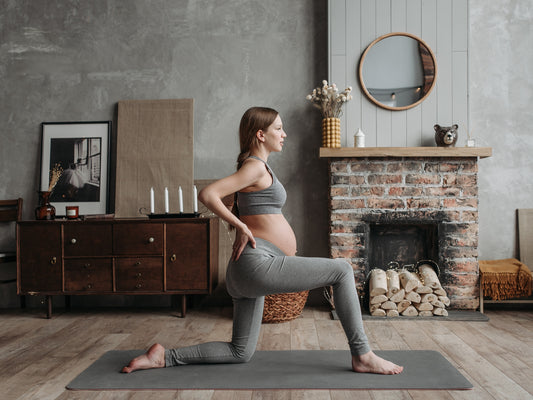Do you wish you could feel more alert throughout your day? Are you falling asleep at the back of class? Struggling to stay awake in meetings? Do you have trouble concentrating or constantly feel in need of a nap? Here’s our analysis of some methods that help you stay awake and alert throughout your day. You might have tried them before, but how effectively are you using them?
Caffeine

Coffee, tea, cola. For many of us, the first thing we reach for when we feel drowsy is our favorite caffeinated drink. Chemically, Caffeine is a stimulant—it calls your central nervous system to action, causing you to feel more alert. However, if you consistently consume a lot of caffeine each day, you can start to feel withdrawal effects, which include drowsiness [1]. You try to combat this by drinking more caffeine, which only makes the withdrawal symptoms worse, so you get trapped in a vicious cycle.
Caffeine also keeps you awake at night. Regular Caffeine consumption may inhibit your ability to get enough sleep, causing you to feel sleepier the next day and reach for yet more caffeine! It’s recommended that you don’t have more that 400mg of caffeine a day. That’s about 4 standard cups of coffee, or two ‘energy shot’ drinks [2], and definitely don’t have any before bed. Advice varies, but depending on your sensitivity, caffeine isn’t recommended 4-6 hours before you turn in for the night [3].
Exercise
Sometimes, the last thing we feel like doing is going for a run or hitting the gym. However, exercise has two key effects on our bodies that can help us feel more awake through the day.
The first is to give an energy boost—even light to moderate exercise for short periods of time can make us feel more awake, and building up a routine has been shown to increase energy levels throughout the day, not just in the hours after exercise [4].
The second effect is to improve sleep quality. By reducing stress, physically tiring you out, and perhaps even helping to reset a poor sleep-wake cycle, you’ll sleep better if you’ve been exercising, meaning you’ll be ready to go and wide awake the next day [5].
Sleep

On average, adults should be getting 7-9 hours sleep a night [6]. If you don’t achieve this, set yourself some sleep goals to boost your energy. But what if you’re still drowsy after 9 hours a night? Well, some of us might need a touch more sleep, particularly if you lead a very active lifestyle, are unwell, or are recovering illness. If you’re struggling to get enough sleep, or know how much you need, try this blog post about resetting your internal sleep clock.
Hydration

You’ve probably been told in sports and science classes that you need 8 glasses of water a day to stay healthy and hydrated. This may seem like a lot (it’s the same as 2 liters or 3.5 pints) but doctors report that one of the most common reasons for appointments is fatigue due to dehydration [7]. Even if you can stomach it, gulping 2 liters of water in one sitting isn’t an efficient way to hydrate, and won’t keep you hydrated all day. Instead, you need to spread your water intake out over the course of the day, to keep pace with the water you’re losing to the environment as sweat or urine. It’s important to remember that some drinks don’t count towards your 8 glasses a day because they are actually dehydrating (energy drinks and alcohol in particular!).
Add Hydrant to your water for that extra hydration kick that will keep you awake and alert.
Writer: Ailsa McKinlay
Editor: Elizabeth Trelstad, www.hellobeaker.com
References
[1] healthline.com The Effects of Caffeine on Your Body. This helpful article from healthline.com takes you through the effects of caffeine on different parts of the body.
[2] Mayo Clinic. Caffeine; How much is too much? March 08, 2017. The Mayo Clinic Staff have written this comprehensive article that helps you evaluate whether you are drinking too much caffeine, and how to reduce your caffeine consumption for a healthier lifestyle.
[3] VeryWellHealth. How Long Should You Wait Between Caffeine and Bed-TIme? Brandon Peters M.D. January 26, 2018. This short blog-style article gives a run down of some core advice concerning caffeine and sleep.
[4] Increase Energy Levels and Cure Fatigue Through Exercise - ACE. Marion Webb. Sept 08, 2011. A blog about exercise and energy levels, and the role of exercise in beating fatigue.
[5] Sleep.org by The National Sleep Foundation. How Exercise Affects Sleep. This article from Sleep.org discusses how your workout may improve your sleep.
[6] National Sleep Foundation. How much sleep do we really need? This article is based on leading sleep research, and cites medical professionals, giving a comprehensive guide to how much sleep you should be getting, and how to make sure you are getting enough.
[7] GPs reveal UK ‘tired all the time’ - National Hydration Council. May 26, 2015. This article consultes evidence from UK General Practitioners regarding patients presenting with fatigue and the underlying causes for it.
[8]. Best Electrolyte Powders is a website with a just-the-facts comparison between the five big electrolyte powder brands















